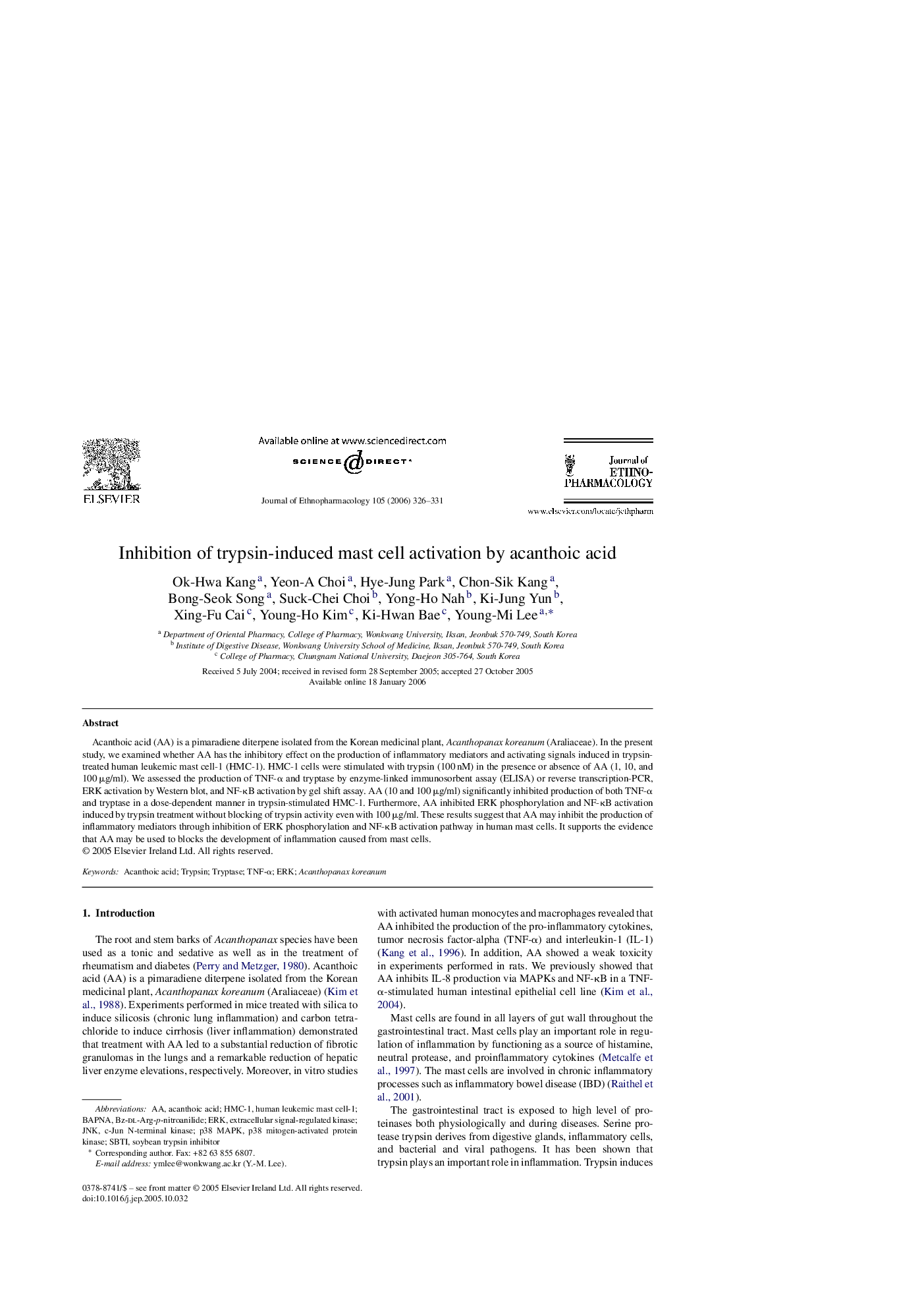| Article ID | Journal | Published Year | Pages | File Type |
|---|---|---|---|---|
| 2548323 | Journal of Ethnopharmacology | 2006 | 6 Pages |
Acanthoic acid (AA) is a pimaradiene diterpene isolated from the Korean medicinal plant, Acanthopanax koreanum (Araliaceae). In the present study, we examined whether AA has the inhibitory effect on the production of inflammatory mediators and activating signals induced in trypsin-treated human leukemic mast cell-1 (HMC-1). HMC-1 cells were stimulated with trypsin (100 nM) in the presence or absence of AA (1, 10, and 100 μg/ml). We assessed the production of TNF-α and tryptase by enzyme-linked immunosorbent assay (ELISA) or reverse transcription-PCR, ERK activation by Western blot, and NF-κB activation by gel shift assay. AA (10 and 100 μg/ml) significantly inhibited production of both TNF-α and tryptase in a dose-dependent manner in trypsin-stimulated HMC-1. Furthermore, AA inhibited ERK phosphorylation and NF-κB activation induced by trypsin treatment without blocking of trypsin activity even with 100 μg/ml. These results suggest that AA may inhibit the production of inflammatory mediators through inhibition of ERK phosphorylation and NF-κB activation pathway in human mast cells. It supports the evidence that AA may be used to blocks the development of inflammation caused from mast cells.
